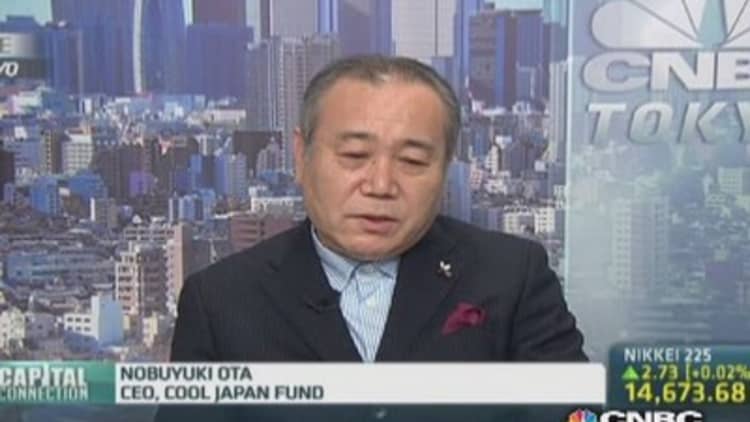Japan is willing to spend millions and millions to let the world know how cool it is, but the official stamp of approval can have its own pitfalls.
Originally set up to promote Japanese anime and manga, the "Cool Japan" campaign has morphed into something much, much bigger.
"Cool Japan should be about supporting new, creative businesses, but instead it's being taken over by big business," Kota Matsuda, an opposition party member of Japan's upper house of parliament and founder of Tully's Coffee Japan, told CNBC by phone.
Two years ago, Prime Minister Shinzo Abe blessed the campaign with an official seal and even appointed a "Cool Japan" minister in charge of strategy. Since then, with an eye to advertising Tokyo ahead of the 2020 Olympic Games, the campaign has been expanded to include fashion, music and even food.
The campaign even has its own investment fund, the Cool Japan Fund, and a 40.6 billion yen ($341 million) war chest to match its big ambitions.
But the broader scope is raising fresh questions about who should decide what is "cool" enough to be promoted with government funds.
"The government's job is to provide a forum to showcase Japanese culture, not decide what should or should not be promoted," said Shoji Kokami, a presenter on "Cool Japan," a weekly program broadcast on cable across the world and author of "Cool Japan!? Japan through the eyes of foreigners."
Cool tax payer
The opposite may be happening, however.
So far, almost all the projects that have been funded by the Cool Japan Fund have been tied to its shareholders, according to Matsuda.

One example is the 11 billion yen joint venture to launch a new television channel to broadcast Japanese content in local languages. Cool Japan Fund's chairman Kazunobu Iijima is a board member of the private sector partner, cable channel operator Sky Perfect JSAT, which in turn is a subsidiary of Fuji Media Holdings, another Cool Japan Fund shareholder and one of Japan's biggest media conglomerates.
Other projects include a new Japanese food court in Singapore and new shopping centers in Malaysia and China, all of which will be operated by major Japanese department store chains.
"The fund needs to review its purpose," said Matsuda.
Who says so?
Another fundamental issue is the gap in perception of a concept as soft as "coolness".
The government may be laying out the money to promote Japanese culture, but what a bureaucrat or a big business executive may think is cool can be very different from what someone overseas may think.
For example, the Japanese often still think that, sushi, tempura and sukiyaki are seen as the gold standard of Japanese cuisine overseas.
But in fact, it's the more down-market ramen soup noodles that are all the rage right now, said Kokami.
"People overseas are very interested in Japanese culture but the government's idea of what is cool can be off the mark," he said.

